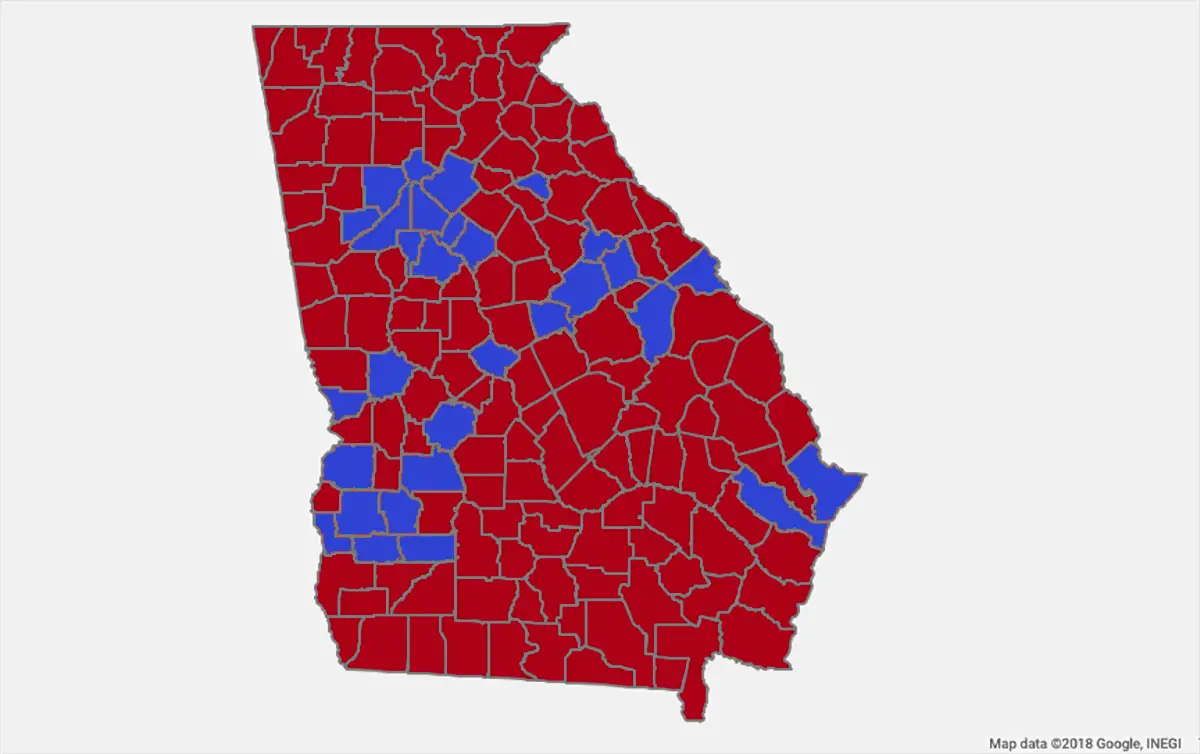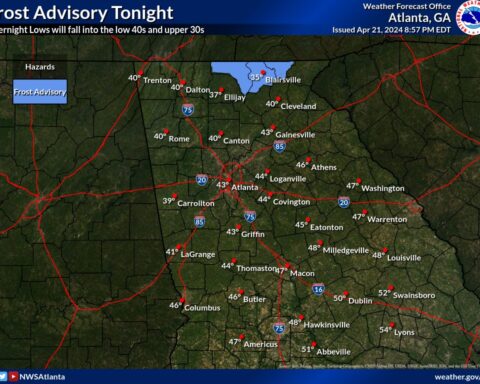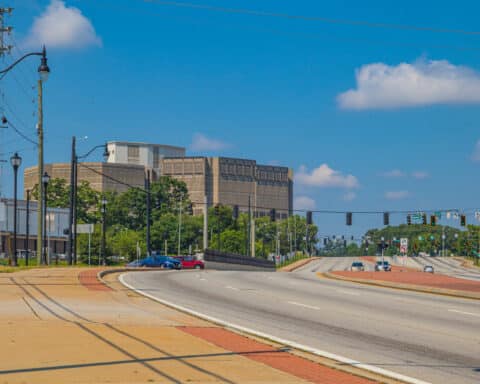It was one of the most contentious governor’s races in Georgia’s history. Brian Kemp and Stacey Abrams were the candidates, but they were largely stand-ins in a larger political and philosophical battle. It was a battle between republicans and democrats, Trump supporters and detractors, small government and large government.
When the dust finally settled 10 days after the last vote was cast, Kemp had won by a narrow margin. Abrams, despite two lawsuits and recounts of provisional and absentee ballots, was unable to close the gap to force the race into a runoff. Now that the election is officially over, let’s look at some of the things we learned from it.
Metro Atlanta’s Suburbs are Turning More Blue
While it is common for suburban areas surrounding large cities to vote democratic, there have been a few strongholds in Georgia that were always thought to be safely red. They were, Cobb County, North Fulton County and Gwinnett County. All three of these republican stalwarts went to democrats — and not just in the 2018 midterms. These same three areas were won by Hillary Clinton in 2016.
The controversial 6th congressional district, made up of parts of North Fulton and Cobb, left republican hands in this election. While Karen Handel was the person who was defeated, her defeat is much larger than one person. This was the seat held by Tom Price and Newt Gingrich. Flipping the sixth is symbolic of what democrats were attempting to do with the entire state.
It’s about the suburbs, but race is a factor
Leading up to the election and in the wake of it, political commentators have talked about how the map would divide, with metro Atlanta going for Abrams and rural Georgia going to Kemp. This fits the narrative that democrats have trouble in rural areas and republicans have trouble in big cities.
However, Georgia adds a wrinkle that harkens back to the Civil War. Georgia’s map shows that Stacey Abrams won rural counties with high minority populations. Kemp did not sweep south Georgia. Also, while Abrams swept most of the suburbs, she did not get the entire 14-county metro Atlanta area.
Democrats seem to have a hard time with voting
This isn’t about accusations of voter suppression or provisional ballots. This is about the act of voting. The margin between Brian Kemp and Stacey Abrams was closer than the margin between most of the other candidates in statewide races. It appears from the number of total votes cast as though a significant number of Abrams voters, voted for Abrams for governor and then stopped voting.
Had Abrams won the election, she would have had to govern a state where all of the state departments were headed up by republicans.
Elections aren’t always settled on election night
The cable networks and local TV stations like to have elections wrapped up by 11 p.m. so they can send readers to bed knowing who will be governing them. If the race isn’t close, this is easy and for decades knowing the outcome by 11 p.m. was such the norm, that when votes take longer to count, voters begin to suspect fraud.
In close elections, long vote counts happen and sometimes the results are protested by candidates at the top and bottom of the ballot. In Georgia, votes were being counted from Nov. 6 all the way through to Nov. 16.
Kemp is the new Trump
Brian Kemp’s surge in popularity at the end of the republican primary was attributed to an endorsement by President Donald Trump. His popularity in the general election was largely fueled by his ability to group himself and his own policies with the president’s.
If this election was a referendum on president Trump, that means that in Georgia the majority of voters embrace Trump and his policies. The implications for the 2020 presidential election are that Georgia will remain a red state, and some of the red districts that flipped blue will likely flip back.
Disclosure: This article may contain affiliate links, meaning we could earn a commission if you make a purchase through these links.






